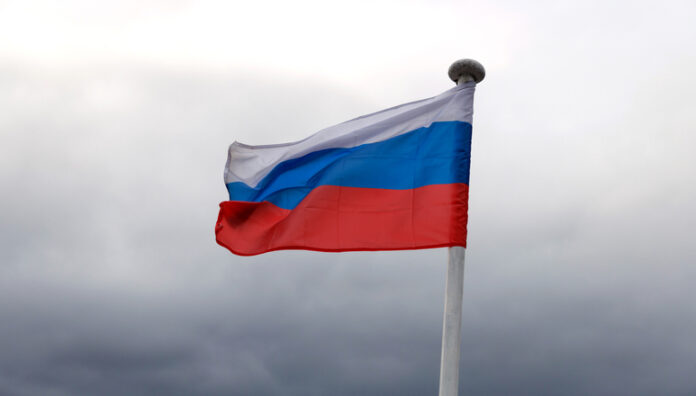Author: George Friedman
Affiliation: Geopolitical Futures
Organization/Publisher: Geopolitical Futures
Date/Place: June 1-8, 2021/ USA
Type of Literature: Two Articles in One Brief
Word Count: 1990
Link: https://geopoliticalfutures.com/russia-as-a-developing-nation/
https://geopoliticalfutures.com/a-russian-move-in-europe/
Keywords: Russia, West, Geopolitical Necessity, The Problem of Economy, A Developing Nation, and Assertive Foreign Policy
Brief:
This is a brief of two short articles by George Friedman on the limits of Russian power and Moscow’s assertive moves in Europe over the last decade. The author starts his first article with a statement by Russian Foreign Minister Sergey Lavrov during a recent conference between Russia and the European Union in which he stated that: “The situation remains rather alarming. Our common European continent is experiencing an unprecedented crisis of trust. Division lines are emerging in Europe again. They are moving eastward and getting deeper as if they were frontline trenches.” According to the author, this observation reflects the Russian geopolitical perspective towards the regional neighborhood and Moscow’s relationship with the West. With the collapse of the Soviet Union, Russia’s western borders moved significantly to the east. Spaces like Belarus, the Ukraine and Moldova became independent countries. There was nothing Russia could do about that. For Moscow, it would suffice that these countries remain as a buffer zone with pro-Russian or at least neutral regimes. However, the 2004 Ukrainian revolution upset the balance and replaced a pro-Russian president with a pro-Western government. Moscow saw this as a coup designed by Washington and sought to retain control of the eastern part of the Ukraine, while Washington asserted the Ukraine’s right to self-determination, and the views of European countries varied between disturbed and indifferent. However, recent events in Belarus have changed the situation and assured the Europeans that Belarus has come under direct Russian influence as well as that the Russian power is moving west and reaching the Baltic and Polish borders; while Russia saw the opposite for a long time, i.e. the European power is the one that moves steadily towards the east. This is exactly what Lavrov was talking about. He warned the Europeans that Russia would respond if they continued to keep up with the US and put pressure on the East. Here the author sees that Russia needs to know what exactly is Europe? and what is the nature of its relationship with the US? If Europe is a united entity with a single foreign policy operating under the auspices of NATO, then Russia is not only standing here against Europe but the United States too. If not, Russia would be in a much stronger position, as Moscow cannot expect to change America’s view on this issue, but it may be able to divide Europe’s view toward Russia. Lavrov’s speech sought to intimidate the Europeans to achieve such a goal, especially since the European Union – as the author argues – hates the intrusion of national security issues over economic issues, it has no unified foreign policy, and no army capable of confronting Russia. A fragmented Europe is Russia’s best line of defense, as it freezes NATO and makes increased US engagement more difficult. However, Friedman stresses here that the Russians are weak, frightened, and not confident of victory despite massing troops here and there. The Russians need to create cracks in Europe so that they can take full advantage of the Belarus opportunity, but they need attractive offers for the Europeans. This is what they really lack.
In his second article, Friedman argues that Russia is a developing nation, not a great power, despite the features of strength that it has shown during the last decade in its regional neighborhood, in particular because it is suffering today from the same problem that the Soviet Union suffered in the past and caused its disintegration: Not having a strong economy to allow it to pursue its geopolitical necessities. Russia did not accept the geographical and political realities created by the collapse of the Soviet Union, which made its behavior aggressive within the former Soviet regions. Through its aggressiveness, Russia has sought to contain Western incursions into the former Soviet buffer zones. The 2008 Russian-Georgian war was the first practical step, then Russia became more assertive and aggressive after the West overthrew the pro-Moscow regime in the Ukraine in 2014. Its aggressiveness was evident in the Ukraine, Belarus, Moldova, and the South Caucasus, as well as the remarkable increase in defense costs. However, these behaviors and the defense increase costs will inevitably collide with the fact that Russia has failed to build a modern and strong economy. Energy is the main source of the Russian economy (30% of its GDP and 40% of its exports), but it does not control the price of energy or market fluctuations that can cause great damage to the economy. A large part of its economy is derived from a single commodity, this is the definition of a developing economy: Reliance on one commodity. It is the same factor that destroyed the Soviet Union, a developing economy whose income is directed towards developing the army in a way that causes limited economic and social development. Russia has not had an opportunity to build a strong economy since the 1990s due to the rise of the oligarchy, the outflow of capital, and other reasons, which in turn have negatively affected its handling of geopolitical issues. Russia is still a large military power today, but it is not strong enough to impose its will on other countries (such as the UK), which may prevent it from accessing their markets and thus cripple Moscow’s economy. Thus, the Russians today are trapped between geopolitical necessity and their difficult economic reality.
By: Djallel Khechib, CIGA Senior Research Associate




